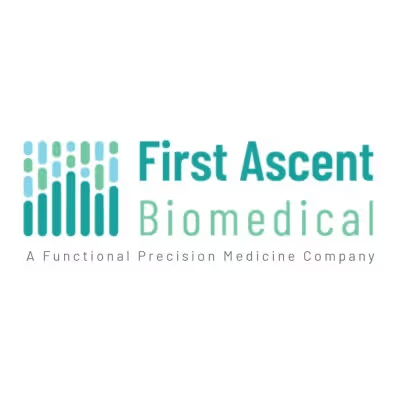
At First Ascent Biomedical, we envision a future where cancer treatment is highly personalized, leveraging the power of technology to transform outcomes for patients worldwide. Our mission is to rewrite the narrative of cancer care by integrating cutting-edge artificial intelligence with comprehensive biological data, enabling precise, patient-specific therapies that save lives.
We are pioneering an advanced Functional Precision Medicine platform that synthesizes DNA/RNA sequencing, drug sensitivity assays, and machine learning to offer rapid, actionable insights into the most effective treatments. By harnessing real-world tumor response data, we drive a new era of hope for patients facing relapsed or refractory cancers, and fuel innovation in oncology drug development.
Our commitment extends beyond individual patients to the broader scientific and medical communities, as we build scalable, CLIA-certified clinical solutions that democratize access to precision treatment worldwide. First Ascent Biomedical is not just creating technology; we are crafting the future of cancer therapy through relentless focus and compassionate innovation.
Our Review
When we first heard about First Ascent Biomedical, we'll admit we were skeptical. Another AI-driven cancer platform? The space is crowded with bold promises. But the more we dug into this Florida-based company, the more impressed we became—and it all starts with a heartbreaking origin story that's anything but typical startup marketing.
CEO Jim Foote didn't launch this company to chase venture capital or disrupt an industry. He founded it in 2018 after losing his son to cancer, and that personal mission shows in everything they've built.
What Makes Their Platform Different
First Ascent's Functional Precision Medicine platform does something we haven't seen elsewhere: it tests over 150 FDA-approved therapies directly on a patient's actual tumor cells within 10 days. We're talking about real-world tumor response data, not just genetic predictions or theoretical matches.
The technology combines DNA/RNA sequencing with drug sensitivity testing and machine learning. But here's the kicker—in their Nature Medicine study, they identified effective treatments for 83% of pediatric patients with relapsed or refractory cancers. Those are kids who'd essentially run out of options.
The Numbers That Caught Our Attention
While First Ascent has raised a modest $8.15 million (small by biotech standards), they're making every dollar count. Their recent $2 million grant from the Florida Cancer Innovation Fund specifically targets underserved communities—a refreshing focus we don't see enough in precision medicine.
They're also building a CLIA-certified commercial lab, which tells us they're serious about scaling beyond research. The 10-day turnaround time is genuinely impressive when most genetic testing takes weeks.
Who This Actually Helps
We see three clear beneficiaries here. Patients get personalized treatment plans when standard protocols fail. Oncologists get data-driven recommendations instead of educated guesses. And biopharma companies get real tumor response data for drug development—something that's notoriously hard to come by.
The recent CancerX 2025 People's Choice Award suggests the medical community is taking notice. For a company founded on personal tragedy, First Ascent seems to be turning grief into genuine scientific progress.
Feature
AI-driven Functional Precision Medicine platform
Integrates DNA/RNA sequencing and drug sensitivity testing
Machine learning-based personalized treatment recommendations
Tests over 150 FDA-approved therapies on liquid and solid cancers
Provides treatment recommendations within 10 days








